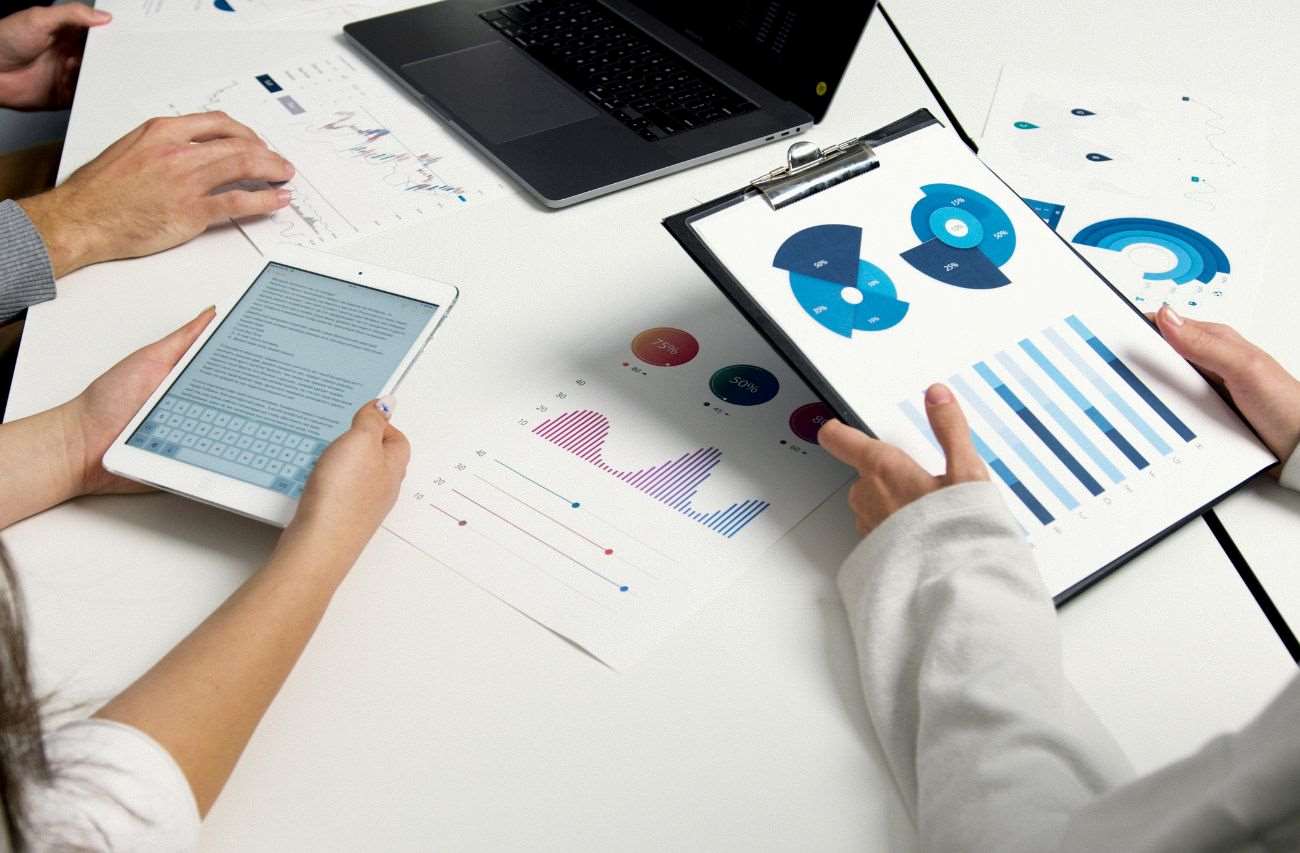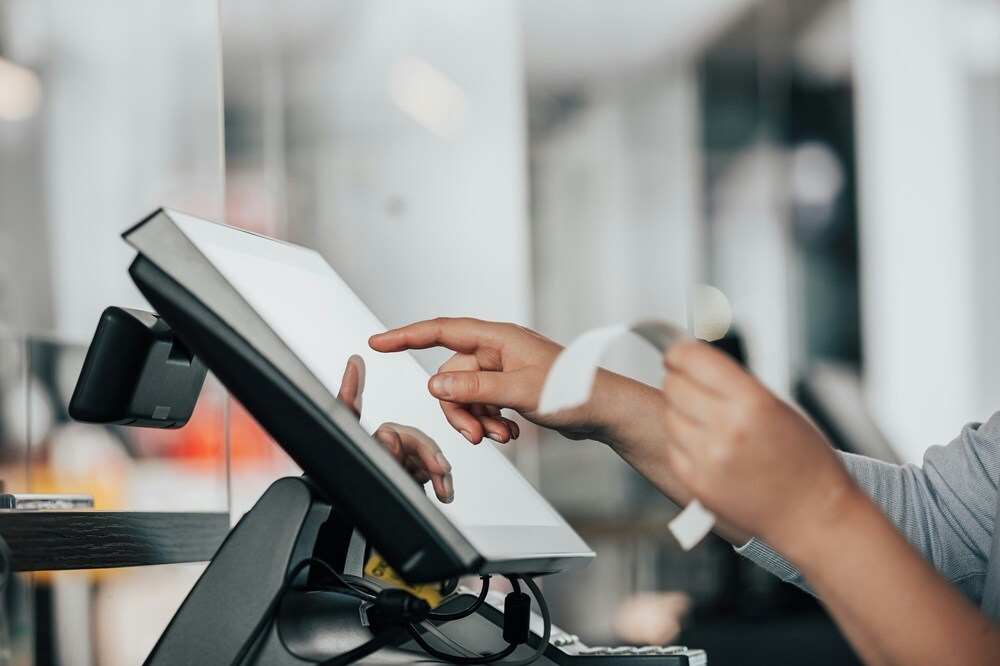
n today’s ever-changing retail world, having the right retail business tools isn’t just a nice-to-have arrangement but an absolute essential for any business that wants to keep up with the competition. These tools play a huge role in making operations smoother, improving how customers experience the brand, and boosting sales, all while cutting down on costs and inefficiencies.
Qalara emphasizes a variety of tools that can help retail businesses get the most out of their operations, from managing inventory to building better customer relationships, and everything in between.
Table of contents:
How do tools help retail businesses?
Making operations more efficient
Creating a better customer experience
Keeping the supply chain and inventory on track
Supporting sustainability and ethical practices
12 effective tools for retail businesses
1. Point of Sale (POS) systems
2. Inventory management software
3. Customer Relationship Management (CRM) systems
6. Analytic and reporting tools
7. Supply chain management tools
9. Payment processing solutions
10. Customer support and communication tools
11. Augmented Reality (AR) and Virtual Reality (VR) tools
How do tools help retail businesses?
The retail sector is a dynamic, fast-paced environment, continually influenced by shifting consumer preferences, evolving market dynamics, and intense competition. To stay competitive, retail enterprises must utilize all the resources at their disposal. Retail tools not only facilitate daily operations but also enhance customer relationships, increase revenue, and promote long-term success. Here’s a closer look at how various tools can help a retail firm succeed.
Making operations more efficient
Operating a retail business involves juggling numerous tasks—managing inventory, scheduling employees, providing customer service, and much more. Retail business tools like POS systems, inventory management software, and workforce management platforms help streamline these processes by automating tasks, reducing errors, and boosting overall efficiency. For example, a smart POS system can automatically update inventory levels with every sale, helping to prevent stock-outs or overstocking. Workforce management tools make shift scheduling easier and ensure that employees are where they’re needed most when they’re needed.
Also read: How to measure and optimize your retail KPIs
Creating a better customer experience
In a competitive market, giving customers a great experience is key to keeping them coming back. Tools like CRM systems, customer support platforms, and AR/VR technologies are essential in making shopping more enjoyable and personalized. CRM systems let retailers tailor their interactions with customers, offering special deals and rewards based on what they know customers will love. Customer support tools, like live chat and chatbots, ensure that questions are answered quickly, keeping customers happy. And then there’s AR and VR, which can turn shopping into a fun, interactive experience by letting customers virtually try on products or explore stores from the comfort of their homes.
Also read: The art of effectively using AI in retail
Boosting sales and marketing
When it comes to sales and marketing, tools like marketing automation platforms, e-commerce solutions, and analytic software are game-changers. These tools help retailers target the right customers, manage campaigns more effectively, and understand what is driving sales. Marketing automation tools allow retailers to set up targeted campaigns, segment their customer lists, and track how well these campaigns are doing. E-commerce platforms help businesses reach a global audience, providing a seamless online shopping experience that is integrated with in-store sales. Analytic tools give insights into customer behavior, sales trends, and market dynamics, helping retailers make smart, data-driven decisions.
Also read: 9 new-age & efficient B2C advertising tools
Keeping the supply chain and inventory on track
For retailers, managing the supply chain and keeping inventory at optimal levels is critical. Supply chain management tools help businesses manage supplier relationships, keep track of shipments, and optimize logistics, ensuring that products are always available when and where customers need them. Inventory management software helps maintain just the right amount of stock, reducing the risk of running out or having too much inventory sitting around.
Handling finances with ease
Managing finances is crucial for retail businesses, and tools like payment processing solutions and financial management software make this task easier. These tools allow retailers to accept a variety of payment methods securely and efficiently, both in-store and online, which enhances the customer experience and ensures transactions are processed smoothly. Financial management tools offer real-time insights into cash flow, profitability, and overall financial health, helping retailers make informed decisions about pricing, promotions, and investments.
Supporting sustainability and ethical practices
With consumers becoming more focused on sustainability and ethical practices, it is more important than ever for retailers to manage their environmental and social impact. Tools that track sustainability efforts help retailers monitor their carbon footprint, offset emissions, and communicate their efforts to customers. Ethical sourcing platforms ensure that products are responsibly sourced, meeting fair labor standards and environmental guidelines. These tools not only help meet consumer demand for ethical products but also build trust and loyalty among shoppers who are positively conscious about the planet and its people.
12 effective tools for retail businesses
In the retail world, having the right tools can make all the difference in how smoothly things run and how well customers are served. Here’s a look at 12 essential retail business tools that can help retail businesses stay on top of their game.
1. Point of Sale (POS) systems

A Point of Sale (POS) system is the heart of any retail operation. It is where sales happen and where valuable data is collected. But today’s POS systems do much more than just handle transactions—they can also manage inventory, track sales, gather customer data, and even help with employee management!
• Cloud-Based POS Systems: Retailers using cloud-based systems like Square or Shopify POS enjoy the flexibility of accessing sales data from anywhere. These systems make it easy to manage multiple store locations and integrate seamlessly with e-commerce platforms, which is essential for businesses that are growing or need to adapt quickly to changes in the market.
• Mobile POS Systems: Mobile POS systems, such as Lightspeed, allow sales associates to process transactions right on the sales floor. This cuts down on wait times and improves the overall shopping experience. They are particularly handy for pop-up shops or businesses that take part in events or markets.
2. Inventory management software
Good inventory management is key to keeping costs down and sales up. Without it, you risk running out of stock or having too much, both of which can hurt your business.
• Automated inventory tracking: Tools like Katana and Cin7 offer automated tracking to help retailers maintain the right amount of stock, predict demand, and avoid running out. These tools often integrate with POS systems and e-commerce platforms, giving a complete view of inventory across all sales channels.
• Barcode and RFID systems: Using barcode scanning or RFID technology can greatly improve how accurately and efficiently inventory is managed. Solutions from Zebra Technologies, for instance, provide the hardware and software needed for real-time inventory tracking, reducing manual errors and boosting productivity.
Also read: 5 hacks to sell excess inventory
3. Customer Relationship Management (CRM) systems
Building strong relationships with customers is vital for long-term success. CRM systems help retailers manage interactions, track purchase histories, and create personalized marketing efforts.
• Omnichannel CRM: Tools like HubSpot and Salesforce offer solutions that allow retailers to connect with customers across various channels—whether in-store, online, or through social media. These platforms help create personalized marketing campaigns based on customer behavior, which can boost loyalty and repeat business.
4. E-commerce platforms
With online shopping on the rise, having a strong e-commerce platform is essential for retail businesses. These platforms allow retailers to reach a wider audience and manage sales from one central system.
• All-in-one e-commerce solutions: Platforms like Shopify, WooCommerce, and BigCommerce offer everything retailers need to build a website, process payments, manage inventory, and provide customer support. They are perfect for small to medium-sized businesses looking to build an online presence.
• Customizable solutions: For larger retailers with specific needs, platforms like Magento offer more flexibility in design, functionality, and system integration, allowing for a custom-tailored online shopping experience that aligns with the brand.
5. Marketing automation tools
Marketing is crucial for attracting and keeping customers. Marketing automation tools help streamline efforts, from email campaigns to social media management.
• Social media management: Social media is a powerful way to connect with customers and promote products. Tools like Hootsuite and Buffer help retailers schedule posts, monitor activity, and analyze engagement across different platforms. This keeps the online presence consistent and allows for quick responses to customer inquiries.
6. Analytic and reporting tools
To make smart decisions, retail businesses need to be data-driven. Analytic and reporting tools provide insights into sales performance, customer behavior, and market trends.
• Sales analytics: Tools like Google Analytics and Power BI offer detailed sales analytics, helping retailers track key performance indicators (KPIs), monitor trends, and identify areas for improvement. This data helps inform decisions on pricing, promotions, and inventory.
• Customer analytics: Understanding customer behavior is crucial for creating personalized marketing strategies and improving the shopping experience. Tools like Kissmetrics and Mixpanel provide detailed insights into customer journeys, helping retailers spot opportunities to engage and convert.
7. Supply chain management tools
Efficient supply chain management ensures products are delivered on time and at the right cost. These tools help retailers manage suppliers, track shipments, and optimize logistics.
• Logistics and shipping: Tools like ShipStation and ShipBob integrate with e-commerce platforms and POS systems to automate shipping, track orders, and offer customers multiple delivery options.
Also read: How to minimize freight costs
8. Workforce management tools
Managing a retail workforce can be challenging, especially during busy seasons or with high employee turnover. Workforce management tools help with scheduling shifts, tracking performance, and ensuring compliance with labor laws.
• Shift scheduling: Tools like Deputy and When I Work make it easy for managers to create and manage employee schedules, track attendance, and communicate with staff. This helps reduce scheduling conflicts and ensures the right staffing levels during peak times.
• Performance management: Platforms like BambooHR and ADP Workforce Now provide solutions for tracking employee performance, setting goals, and conducting reviews. These tools help identify top performers, address issues, and plan for employee development.
9. Payment processing solutions
Efficient and secure payment processing is a must for retail businesses, whether in-store, online, or both. These tools help retailers accept various payment methods and ensure transactions are processed smoothly.
• Contactless payments: With the rise of contactless payments, tools like Apple Pay and Google Pay offer customers a convenient and secure way to pay using their smartphones or contactless cards. This has become especially important in the post-pandemic world, where contactless transactions are preferred by many shoppers.
10. Customer support and communication tools
Providing great customer support is key to building loyalty and encouraging repeat business. These tools help manage customer inquiries, resolve issues quickly, and keep communication lines open.
• Live chat and chatbots: Live chat tools like Intercom and Drift allow retailers to engage with customers in real time, answering questions and guiding them through the buying process. Chatbots can handle common inquiries, freeing up staff for more complex issues and ensuring customers get quick assistance.
11. Augmented Reality (AR) and Virtual Reality (VR) tools
AR and VR are becoming more popular in retail as technology advances. These tools enhance the shopping experience by allowing customers to visualize products in their space or explore virtual stores.
• AR for product visualization: Tools like Shopify AR and Augment let customers visualize products in their own space before buying, which is especially useful for furniture, home decor, and fashion retailers. This helps reduce returns and increases customer satisfaction.
• VR for immersive shopping: VR tools like Obsess offer retailers the chance to create immersive virtual store experiences that customers can explore from home. While still in the early stages, this technology could change how people shop online.
12. Sustainability and ethical sourcing tools
As more consumers focus on sustainability, retailers are also turning to tools that help them manage their environmental impact and ensure ethical sourcing.
• Sustainability tracking: Platforms like EcoCart and Green Story help retailers track their carbon footprint, offset emissions, and share their sustainability efforts with customers. This meets the growing demand for eco-friendly products and practices.
• Ethical sourcing platforms: Organizations like Fair Trade USA and BSCI provide resources to ensure products are sourced ethically and that suppliers follow fair labor practices. These platforms help build trust with consumers and stand out in a crowded market.
Conclusion
In the fast-evolving retail landscape, leveraging the right retail business tools is pivotal for thriving amidst competition. The diverse array of tools discussed—from POS systems and inventory management software to CRM platforms and sustainability tracking—demonstrates their critical role in enhancing operational efficiency, enriching customer experiences, and driving sales growth.
By integrating these tools effectively, retailers can streamline their operations, cater to changing consumer demands, and ensure long-term success. Embracing these technological advancements not only helps businesses stay competitive but also supports their journey toward a more sustainable and customer-centric future. We’d love to know which of these tools you utilize on a day-to-day basis. Write to us and stay tuned for more retail-related insights!
~ Written by Kartik Khati






Leave a Reply